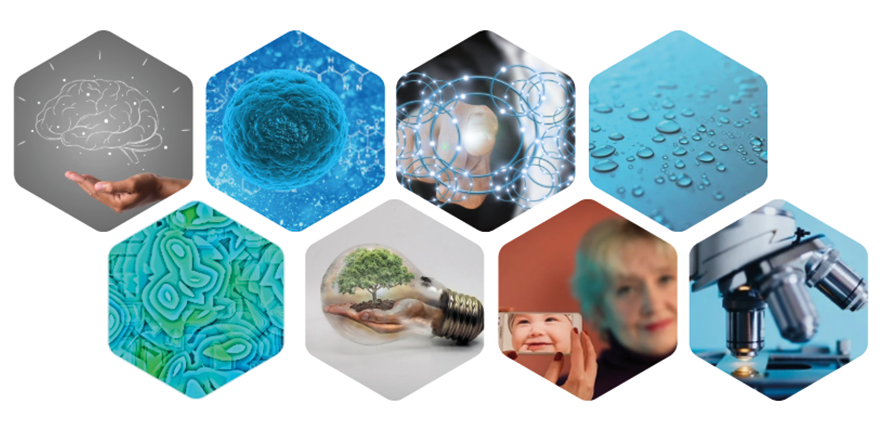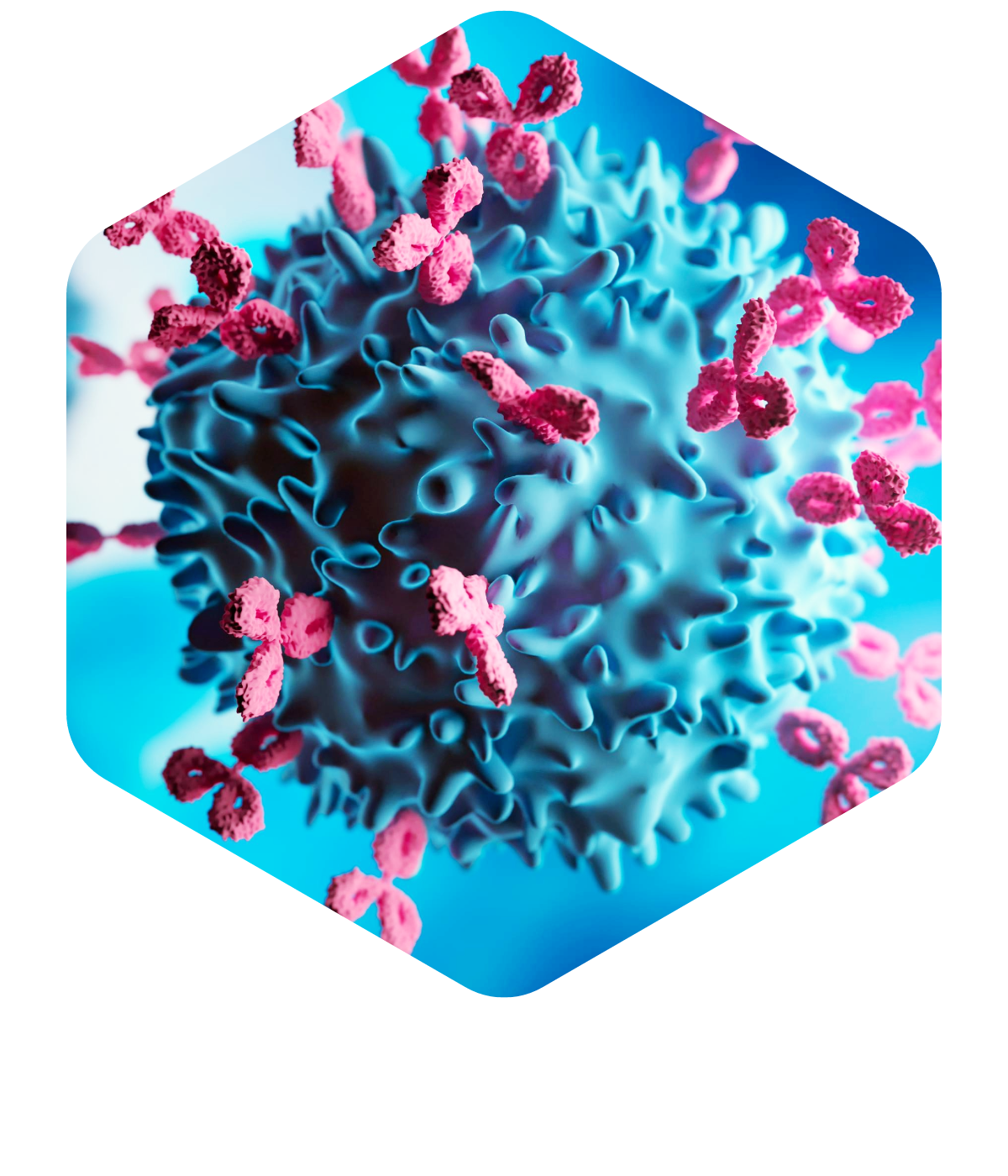
A core aim of the Research Themes is to “promote collaboration and interaction across traditional departmental boundaries”, and through feedback from Group Leaders across the School we are now identifying areas of synergy that will enhance research and drive innovation. Referred to as ‘Grand Challenges’, these focussed research topics are scientifically ambitious, naturally span disciplines, and can be developed towards collaborative grant proposals and philanthropic engagement.
A summary of the current and emerging Grand Challenges across the Research Themes are highlighted below. We welcome opportunities to collaborate with industry partners, policy makers and academics. If you are interested in working with us, please contact Dr Abi Herrmann, Research Strategy Manager.
Breakthrough Biology for Cancer Research
Academic Leads: Discovering the biological blueprints of cancer - Catherine Lindon and Suzanne Turner
Fighting cancer with the immune system - Brian Ferguson and Rahul Roychoudhuri
Fundamental research into the biological causes and drivers of cancer is vital to deliver scientific progress in this priority area of human health. Researchers from the School of Biological Sciences and the wider University are working together across disciplines to develop innovations and insights at the frontiers of cancer biology, laying the groundwork for the development of accurate diagnostic tools, preventative strategies and personalised cancer treatments.
The two current areas of focus are: Discovering the biological blueprints of cancer and Fighting cancer with the immune system.
Lead Research Themes: Molecules and Cells and Infection and Immunity
Complex tissue regeneration across scales and systems
Academic Leads: Ben Steventon and Mekayla Storer
Embryos and plants show us that multi-tissue regeneration is possible, however complex animals and humans have mostly lost this capability. Researchers in Cambridge are working together to learn lessons across tissues, systems and scales to make human limb and organ regeneration possible.
Lead Research Theme: Reproduction, Development and Lifelong Health
Life at the Extremes
Academic Leads: Extremes and Society - Amanda Sferruzzi-Perri and Sarah Lloyd-Fox
Organisms and Extreme Environments - Laura Itzhaki and Melody Clark
'Life at the Extremes' encompasses the exploration of organisms, people and societies that exist in environments that are considered exceptionally challenging or harsh, such as extreme temperatures, high altitudes, areas of low nutrient availability and societies recovering from natural disasters. Working together across disciplinary boundaries, Cambridge researchers are delivering new knowledge on the rules of life in extreme environments. Growing our understanding of the biology or resilience in these extreme environments offers important new opportunities to shape the future of resilient life, climate responses and global health.
Lead Research Theme: Organisms, Evolution and Ecology
Microbiome research for human, animal and planetary health
Academic Leads: Alex Almeida and Kiran Patil
Unlocking the secrets of the microbiome offers immense promise for improving human, animal, and planetary health. The microbiome refers to the diverse community of microorganisms, including bacteria, viruses, and fungi, living within and on our bodies, as well as around us in the environment.
Cambridge researchers from across disciplinary boundaries are working together to understand and harness the power of these tiny organisms to drive a step change in our understanding of human and animal health. Moreover, recognising how human activities impact the planet's microbiomes can guide sustainable environmental practices and promote biodiversity, delivering a healthier plant where all can thrive.
Revolutionising Evolutionary Biology: the Network of Life Approach
Academic Leads: Ian Henderson, Rebecca Kilner and Emily Mitchell
Since Charles Darwin popularised the concept of the ‘Tree of Life’, the branching model of evolution has been widely acknowledged as a central principle in modern biology. Researchers in Cambridge are now challenging this thinking, recognising that many evolutionary processes, from genetic inheritance through to language and cultural evolution, are better represented as interconnected networks rather than a branching tree, termed the 'Network of Life'
Through dynamic and collaborative research across biological and cultural evolutionary systems, we aim to gain a deeper understanding of these networks of evolution which can drive a paradigm shift in modern evolutionary biology.
Lead Research Theme: Functional and Evolutionary Genomics
Mental health and illness across scales, species, and society
Academic Leads: Rebecca Lawson and Amy Milton
Mental health issues are projected to be one of the world's biggest causes of ill health by 2030. In response, the Neuroscience, Psychology and Behaviour Theme is building a network of researchers to develop opportunities that cut across multiple disciplines and improve the linkage of biological mechanisms with social and environmental drivers of mental health and illness.
Lead Research Theme: Neuroscience, Psychology and Behaviour
Extending healthy lifespan
Academic Leads: Walid Khaled
Over the last 60 years the global average life expectancy increased by more than 20 years, partly as a result of countless medical breakthroughs. However, most of these medical interventions address the symptoms rather than the causes of age associated diseases. Scientists in the School of Biological Sciences are combining their world leading expertise to tackle some of the biggest questions in human biology: What if we could identify those at risk of developing chronic age-related conditions before they present in the clinic? What if we could intervene before any symptoms arise and prevent disease onset? These changes would revolutionise healthcare and transform our twilight years into a healthy period of our lives.
Lead Research Theme: Reproduction, Development and Lifelong Health
Biological responses to climate and one health
Changing pathogens in a changing world
Academic Lead: Olivier Restif
Growing human populations, environmental shifts and increasing international movement are the recognisable features of our changing world, and are contributing factors to the emergence, resurgence, and redistribution of many infectious diseases. Cambridge researchers are working across disciplinary boundaries to understand how pathogens are responding to our changing world. Working collaboratively and in partnership with affected communities, we will deliver effective strategies to protect our planetary health and the global community across future generations.
Lead Research Theme: Infection and Immunity
Molecular biology for climate solutions
Academic Leads: Beverley Glover and Kiran Patil
Molecular biology allows scientists to study biological phenomenon at the level of atoms, molecules and cells. Commonly used in health and disease research, scientists in Cambridge are harnessing modern biological techniques to transform our understanding of climate change and accelerate much needed solutions in this area.
Lead Research Theme: Organisms, Evolution and Ecology










